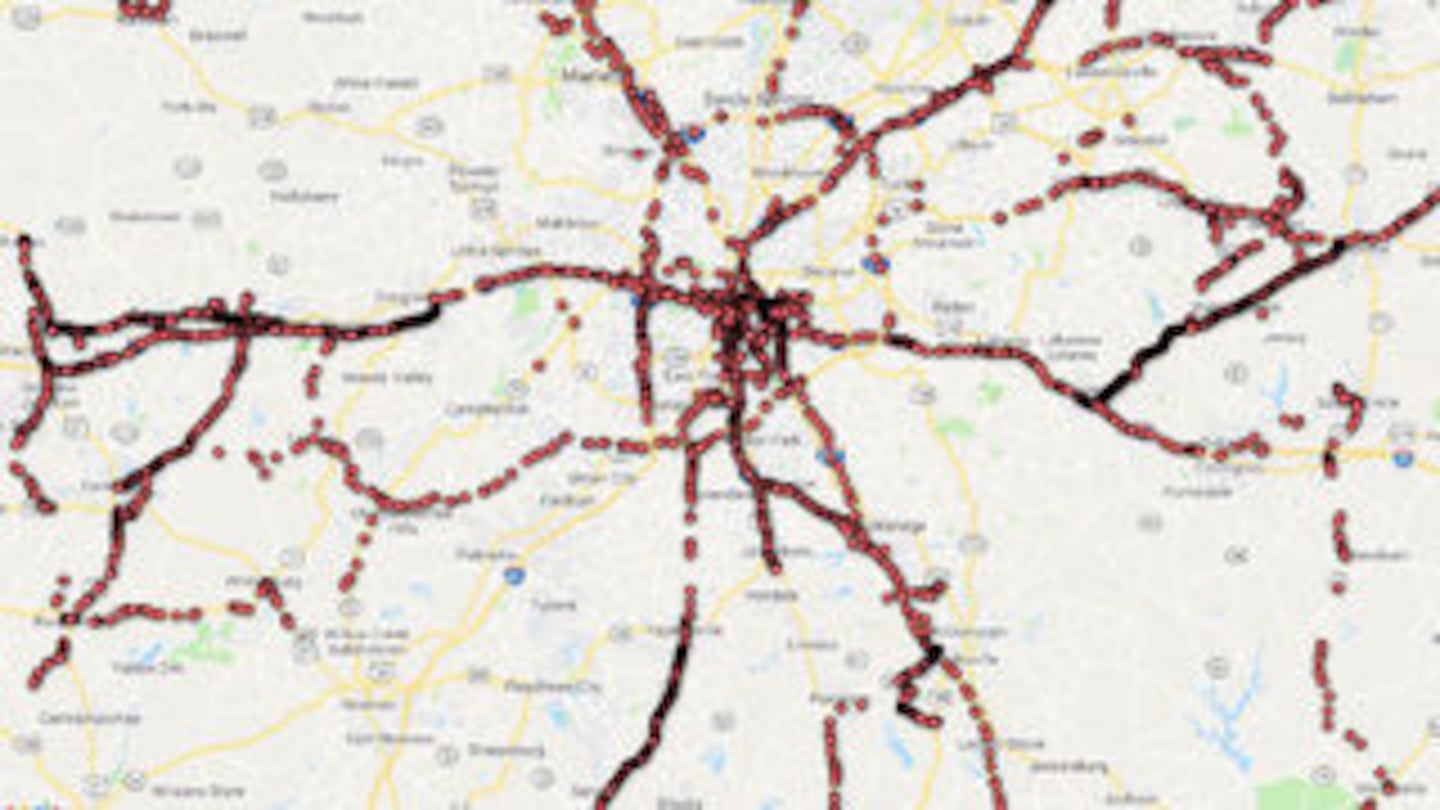ATLANTA — They have become the go-to technology that law enforcement uses to solve crimes: license plate readers.
The readers scan every plate – even cars going in the opposite direction – and record the GPS location, date and time to flag stolen cars or wanted people for police.
[SPECIAL SECTION: Eyes on the Road]
"I don’t have to be constantly stuck on the computer running tags. I can let the cameras do the work for me while I can stay focused on the roads, stay focused on other people driving,” said Trooper Trey Thomas.
Channel 2 Action News worked for months to collect license plate reader – or LPR – data from more than a dozen law enforcement agencies in Georgia. The data can be stored for up to two and a half years, all linked to the seven digits on the backs of people's cars.
[INTERACTIVE MAPS: See where police departments have used license plate readers]
But while the readers can help find criminals, they also collect information on you. Critics call them a form of mass surveillance that reveals personal information about where you have been.
"The government should not be collecting information on everybody in order to go after a small portion of people,” said Dave Maas, who studies LPRs for a nonprofit privacy rights group.
READ the full story with a breakdown of all the data we've collected over the years in our special EYES ON THE ROAD section.
Cox Media Group





